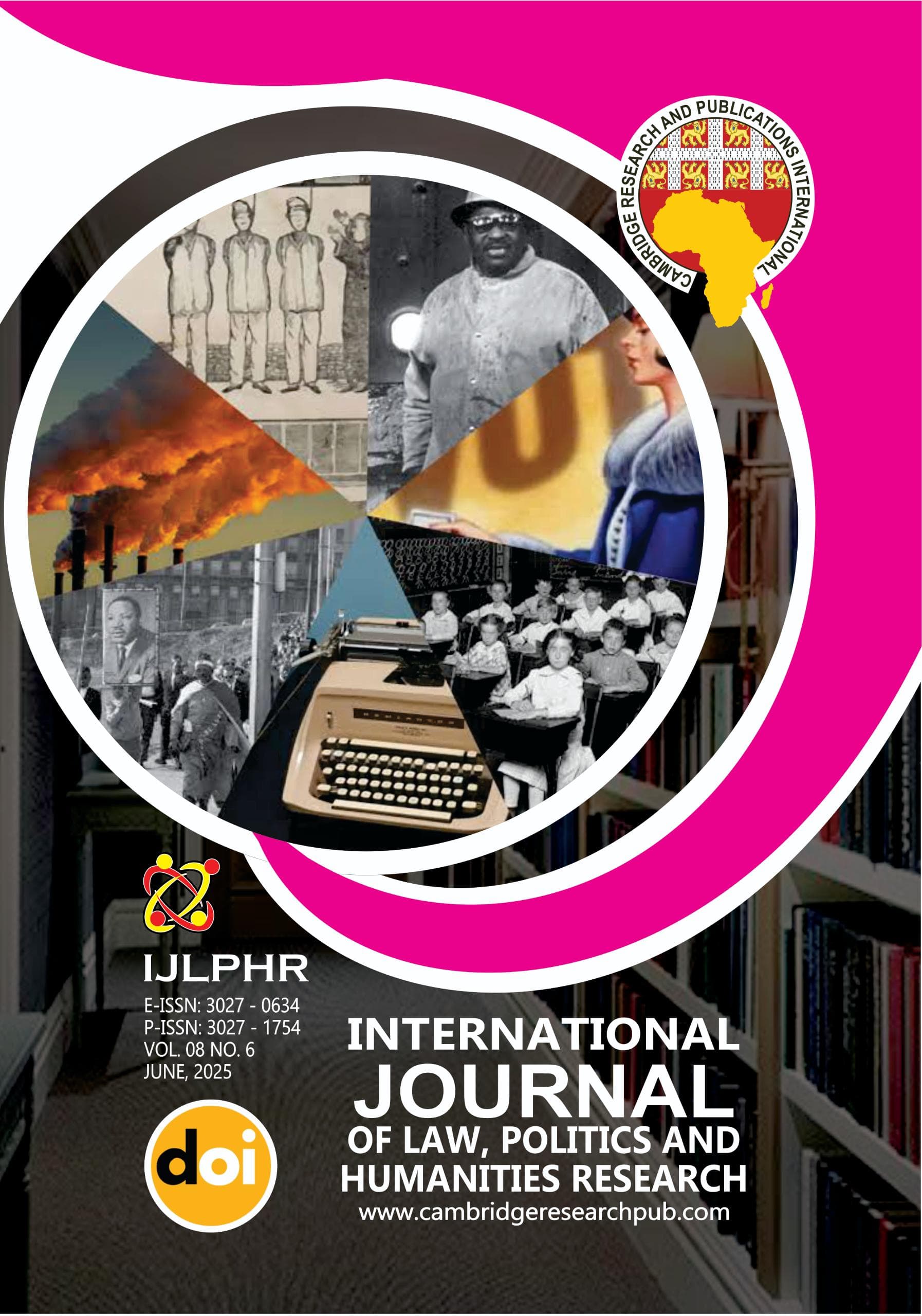AN ASSESSMENT OF THE IMPACT OF ELECTION OBSERVATION AND PUBLIC PARTICIPATION ON THE DEMOCRATIC PROCESS IN NIGERIA A CASE STUDY OF KANO STATE
Main Article Content
Abstract
Electoral integrity remains vital to democratic consolidation, particularly in transitional contexts like Nigeria. Since the return to civilian rule in 1999, the country’s electoral process has been marred by irregularities, violence, voter suppression, and eroding public confidence in electoral institutions. This study investigates how election observation and citizen participation contribute to electoral transparency and democratic governance. Adopting a mixed-methods approach, it combines quantitative surveys of 450 voters with qualitative insights from in-depth interviews involving 15 key stakeholders, including Independent National Electoral Commission (INEC) officials, civil society actors, and election observers. The research was carried out in three purposively selected Local Government Areas of Kano State - Kano Municipal, Dala, and Nassarawa. Data collection involved structured questionnaires, interviews, and document reviews, while analysis employed SPSS for quantitative findings and thematic content analysis for qualitative evidence. The findings indicate that 75% of respondents engaged in electoral activities, though only 11.3% had attended structured voter education programs. Civic education showed a strong positive correlation with voter turnout, making participation more meaningful. The correlation coefficient r = 0.67 indicates a strong positive relationship between civic education participation and voter turnout. About 84.4% were aware of election observers, with 67.4% acknowledging their role in enhancing credibility. However, only 21.3% rated elections as highly credible, while 58% considered them moderately credible, influenced by result timeliness, security, and INEC’s neutrality. The results indicate that credible election observation, domestic and international significantly improves electoral transparency, deters malpractice, and increases public confidence in electoral outcomes. The study concludes that election observation and public participation are essential yet insufficient on their own. Their effectiveness depends on broader systemic reforms, including strengthened electoral laws, institutional capacity building for INEC, and protection of political freedoms. This study contributes to ongoing academic and policy debates by offering practical insights into the conditions necessary for participatory and transparent electoral governance in Nigeria.
Downloads
Article Details
Issue
Section

This work is licensed under a Creative Commons Attribution 4.0 International License.




